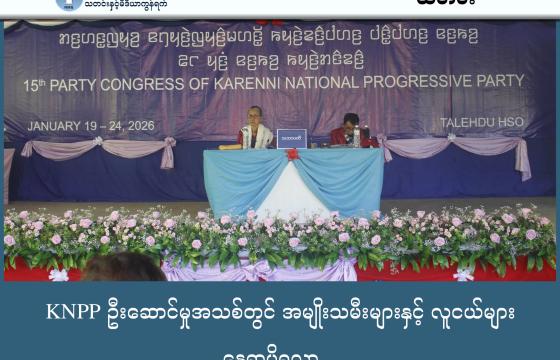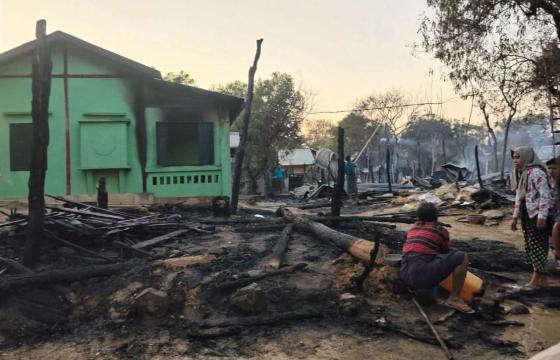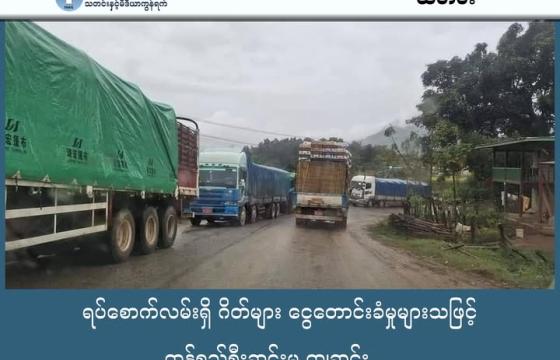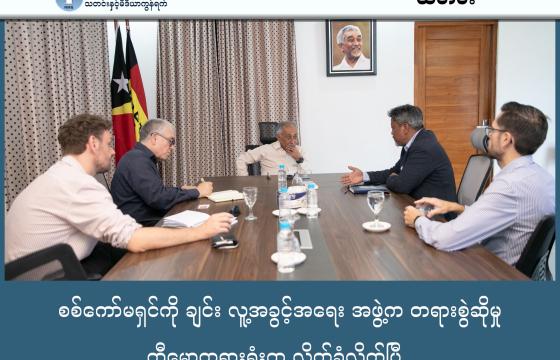Shan refugee and internally displaced people’s [IDP] camps on the Thai-Burma border are facing difficulties securing food and guaranteeing the communities’ safety, representatives from the Shan Human Rights Foundation (SHRF) and the Shan State Refugee Committee (SSRC) said.
The organizations are demanding that the international community provide greater support for the Shan displaced to the border by armed conflict.
In 2017, donors cut off humanitarian assistance to Shan refugees. According to SHRF and SSRC, there are currently no international organizations providing aid to these 6,000 people.
“Currently, it’s a critical situation. We are worried about food and security for these refugees. They are facing a food shortage as well as worrying for their safety,” SHRF spokesperson Sai Yord Luin told NMG, adding that the five long-established camps often no longer are acknowledged on international NGOs’ maps of the region.
SHRF and SSRC released a joint statement on May 23 describing how the Burma Army and the United Wa State Army (UWSA) have expanded their military presence near these displaced persons camps.
“Refugees are so worried about their safety. I want to call for the stop of military expansion near IDP [internally displaced people’s] camps,” Sai Yord Luin said.
The Burma Army has constructed new roads, flown drones over five camps, and even shot at two refugees with 120-mm shells multiple times, SHRF and SSRC highlighted. This is occurring despite the Restoration Council of Shan State—the Shan armed group active in the area—signing the Nationwide Ceasefire Agreement with the military.
According to SHRF and SSRC’s report, UWSA forces broke a demarcation agreement with the RCSS and seized land used for farming the near the Loi Kaw Wan IDP camp in February. The move has made it difficult for people in the camp to search for food in the area.
“Our village and our paddy fields are in the hands of Burma army and the UWSA forces. With this situation, it’s impossible for us to return home,” Sai Leng, and SSRC spokesperson and a refugee himself, said.
Those living in the camps include ethnic Akha, Chinese, Karen, Lahu, Lisu, Pa-O, Shan, Lisu, and Shan people. The camps are called Kong Moong Murng, Koung Jor, Loi Kaw Wan, Loi Tai Leng, Loi Lam, and Loi Sam Sip.
Most of these refugee and IDP camps were set up around 1999, when peple fled villages in Shan State in 1996 and 1998 due to the implementation of the Burma Army’s four-cuts policy.






